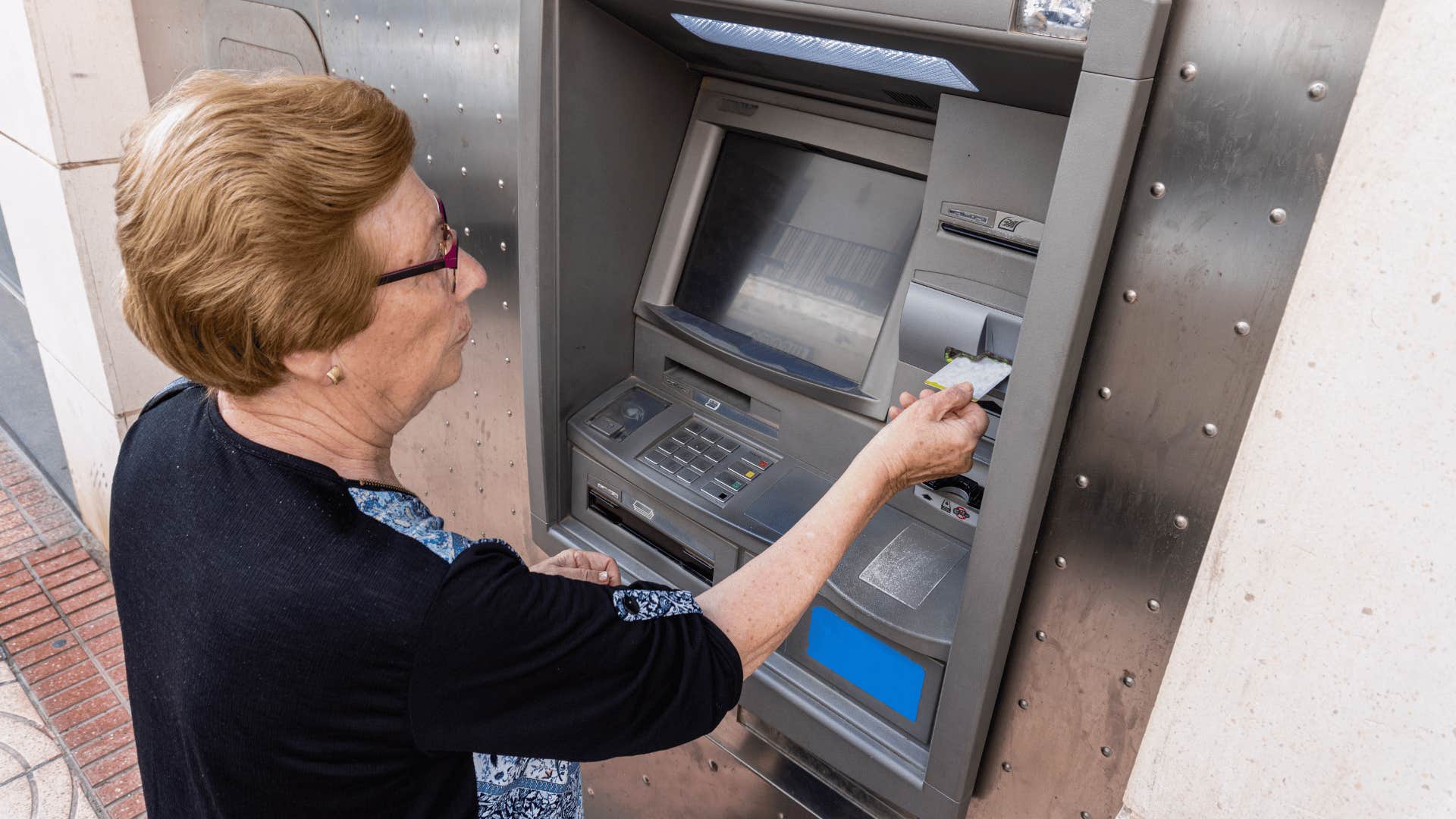10 Things Boomers Spend Money On That Gen Z Would Never
A deep dive into generational spending habits we should keep, and ones we shouldn't.
 Dean Drobot | Shutterstock
Dean Drobot | Shutterstock The younger generation, Gen Z, brings a fresh perspective that contrasts with the older boomers. From their unique style choices to their distinct ways of communicating, each generation has its own unique vibe. It's interesting to note that while boomers might invest in certain things, there are some expenses that Gen Z wouldn't consider at all.
Unlike boomers, who readily buy lottery tickets, Gen Z is reluctant to invest even in checkbooks. What are the specifics of these spending habits, and are they necessarily negative?
Here are 10 things boomers spend money on that Gen Z would never:
1.Greeting Cards
 Miljan Zivkovic | Shutterstock
Miljan Zivkovic | Shutterstock
Boomers still cherish the tradition of sending physical greeting cards for special occasions, while Gen Z opts for digital messages, GIFs, and emojis instead.
Mailing greeting cards is affordable and offers a thoughtful gesture for many people. Whether it’s a grandchild of a boomer or other relatives, most value the consideration and effort behind sending cards. However, Gen Z is less likely to engage in this practice overall.
Given their strong tech skills, Gen Z will likely share a Merry Christmas message featuring a fun GIF to make it extra special. It’s not surprising, though; a study by Talker Research found that Gen Z spends nearly seven hours a day engaging with media.
Boomers shouldn't feel 'old' or ashamed if they send cards to their loved ones. Not only does it show consideration for the other person, but it can also show the younger generations why putting in the extra effort is so important.
2.Magazine Subscriptions
 StockImageFactory.com | Shutterstock
StockImageFactory.com | Shutterstock
Print magazines and newspapers remain a staple for boomers, while Gen Z relies on free online content and subscription services like Spotify and Netflix for entertainment.
Many in Gen Z have moved away from magazine subscriptions. They see little reason to flip through magazines when there's so much information and fun to be found online and on social media. However, unlike Gen Z, many boomers still enjoy spending a little extra on a daily magazine or newspaper, appreciating its tactile experience.
Unlike Gen Z, boomers are careful with spending. Bango research shows that boomers keep their subscriptions to about $100 monthly. Younger generations, however, are more willing to spend on services like Spotify and DoorDash, which may be cheaper right off the bat but tend to charge multiple times throughout the month, depending on how often you use it.
While generational differences can play a role, many believe these subscriptions aren't necessary. With the vast amount of information out there today, it's easy to feel overwhelmed.
A study from 2023 found a strong link between social network use and feelings of anxiety, insomnia, and depression. It’s important to be mindful of how these factors affect mental well-being, so taking care is key!
3.Landlines
 DC Studio | Shutterstock
DC Studio | Shutterstock
Boomers keep landlines for reliability, but Gen Z sees them as outdated, preferring mobile phones and wireless communication.
Older generations feel nostalgic about house phones, recalling simpler times when using a kitchen landline was the norm. They remember awkwardly standing under their parent's watchful gaze without technology distracting them, eavesdropping on conversations.
Many Gen Z individuals find it pointless to maintain and pay for landlines at home. Nevertheless, opting for landlines rather than constantly carrying cell phones can be advantageous, particularly for children, as it eliminates tech distractions and allows them to explore and play.
The Global State of Mind Study 2024 reveals that 19% of Gen Z were active during childhood, while 82% of the Silent Generation were actively engaged during theirs.
Knowing this, landlines can be used to establish firm boundaries on how much time people spend on their phones and even encourage them to get up and walk around, which will benefit their health and well-being in the long run.
4.Cable TV
 Prostock-studio | Shutterstock
Prostock-studio | Shutterstock
Cable subscriptions are still popular with boomers, but Gen Z chooses streaming platforms like Netflix, Hulu, and YouTube for their content needs.
Let’s set the record straight: cable TV is fantastic! With package deals and a seemingly endless array of shows available, it’s no surprise that boomers are enthusiastic about cable TV. However, for the Gen Z generation, the era of cable is well behind them.
As reported by Statista, more than half of TV households lack a traditional cable or TV subscription. Streaming platforms like Netflix and Hulu are becoming increasingly popular among Gen Z, who view this as a budget-friendly alternative to cable TV.
However, this demographic overlooks the fact that most cable providers offer bundled packages that can include Internet and phone services at discounted rates.
While Gen Z turns up their noses at cable TV, boomers continue to use it contentedly, likely saving a significant amount of money in the process.
5.Print Media
 Dragon Images | Shutterstock
Dragon Images | Shutterstock
Boomers prefer the tactile experience of physical books, while Gen Z gravitates toward e-books and digital reading platforms like Kindles.
However, this Kindle vs. physical book feud isn't limited to these generational differences. Many readers still believe that holding an actual book is a much better experience than using LED or e-ink displays to get the job done.
There are even physical benefits to reading on old-school paper and ink — as one study from 2013 found, reading on electronic devices can trigger significant visual fatigue.
So, Gen Z should follow the boomers' example and buy print media, even if it's inconvenient or more expensive. Now, is reading in the dark a hassle? Yes, but their eyes will thank them for it.
6.In-Store Shopping
 piksekstock | Shutterstock
piksekstock | Shutterstock
Boomers enjoy the traditional shopping experience, but Gen Z leans heavily on online shopping for convenience and speed.
With debt and longer working hours, in-store shopping can be stressful as life gets busier for Gen Z.
Boomers, having mastered balance over their lives, often enjoy stable hours or are nearing retirement, resulting in a lesser need for convenience compared to Gen Z. For boomers, shopping can be a social opportunity as their circles shrink.
Because of this, boomers don’t mind spending extra time and money shopping in stores. As Yale University pointed out, sometimes shopping in-store saves more money than shopping online. So, even if it’s convenient, the older generations seem to save more money when shopping in stores.
7.Collectibles
 Ground Picture | Shutterstock
Ground Picture | Shutterstock
Boomers appreciate sentimental and valuable collectibles, but Gen Z’s minimalist lifestyle steers them away from such purchases.
Many may not realize that younger generations, including Gen Z and Millennials, are often labeled as the minimalist generation. Having grown up in homes filled with their parents' clutter, they now reject the notion of hoarding or purchasing collectibles that lack real value.
Despite popular belief, these ‘small knickknacks’ are more sentimental than Gen Z realizes. Collectibles can be valuable and often have a strong family history that shouldn't be neglected.
Unfortunately, Gen Z is less likely to invest in these items, allowing older generations to acquire them.
8.Timeshare Vacations
 PeopleImages.com - Yuri A | Shutterstock
PeopleImages.com - Yuri A | Shutterstock
Boomers invest in timeshare properties for vacationing, while Gen Z finds them expensive and impractical compared to Airbnb and other travel options.
Bankrate defines a timeshare as a vacation property shared among several owners. At first, this may appear to be an expensive investment, but timeshares can be incredibly beneficial for frequent travelers or those who plan to vacation more in the future.
This method of purchasing timeshares can lower overall costs (or at least distribute them more evenly throughout the year).
Boomers can enjoy their vacations free from financial worries, and their family members can take advantage of these comforts.
9.Lottery Tickets
 Stock 4you | Shutterstock
Stock 4you | Shutterstock
Boomers often try their luck with lottery tickets, but Gen Z is less inclined to spend on gambling or games of chance.
According to YouGov, a whopping 38% of boomers in Britain spend money on the lottery. And although most of Gen Z refuses to spend money on lottery tickets, boomers aren't afraid to have a little fun and cough up cash for a quick thrill.
Granted, this isn't the most cost-effective activity. However, considering the amount of money Gen Z spends on shoes and skincare, boomers shouldn't feel too bad about using a little of their money for some good-natured fun! After all, everyone needs some fun in their lives, right?
10.Checkbooks
 Miguel AF | Shutterstock
Miguel AF | Shutterstock
Boomers rely on checkbooks for financial organization, while Gen Z rarely uses them, favoring digital payments and banking apps.
It's important to note that most checkbooks are free when someone opens a checking account. If boomers are savvy, they might even have a bank offering free refills without additional costs. However, some banks charge upwards of $30 for a checkbook.
This might seem ridiculously high for some Gen Zers who never had to fill out a check before.
Yet, for organized boomers who like to keep track of their expenses or have proof of their expenses, using a checkbook is the best old-school way to get there.
Marielisa Reyes is a writer with a bachelor's in psychology who covers self-help topics such as relationships, career, family, and astrology.
